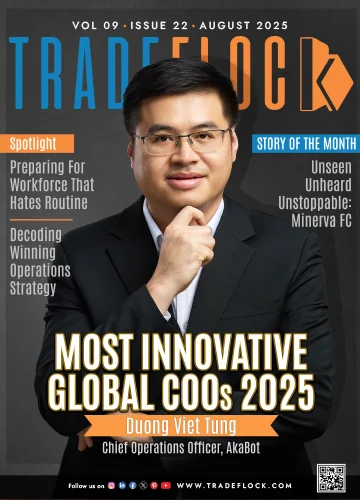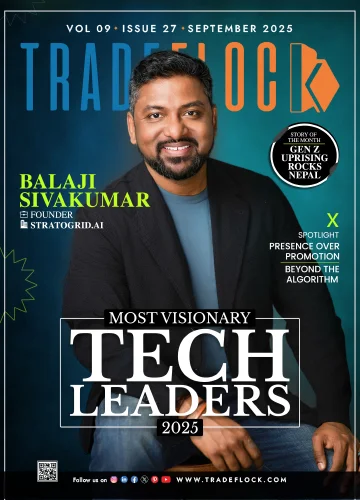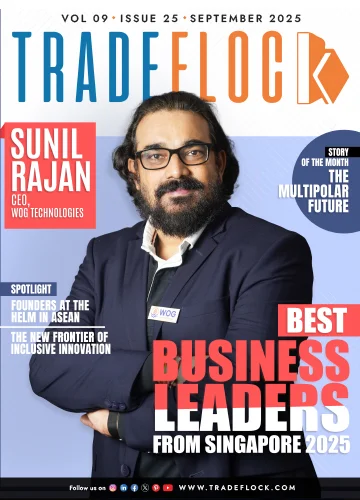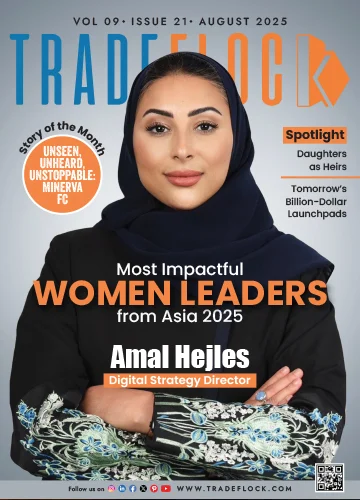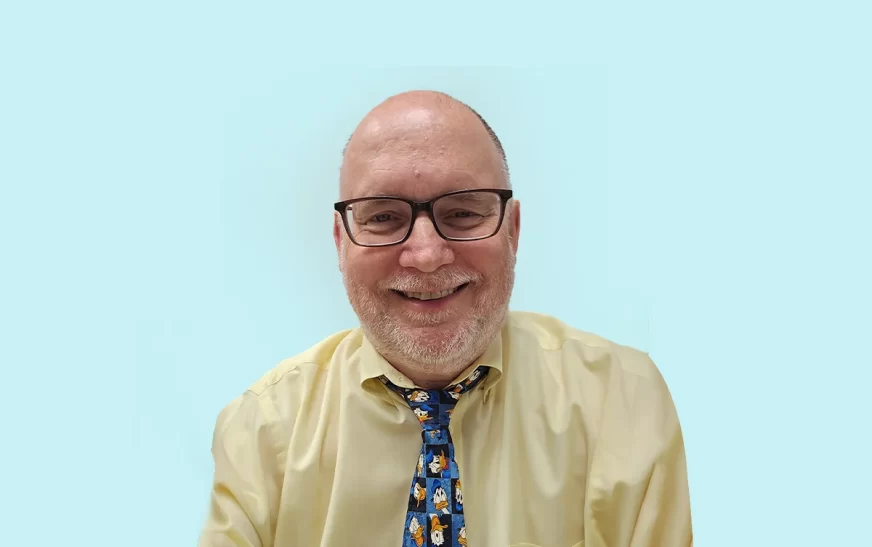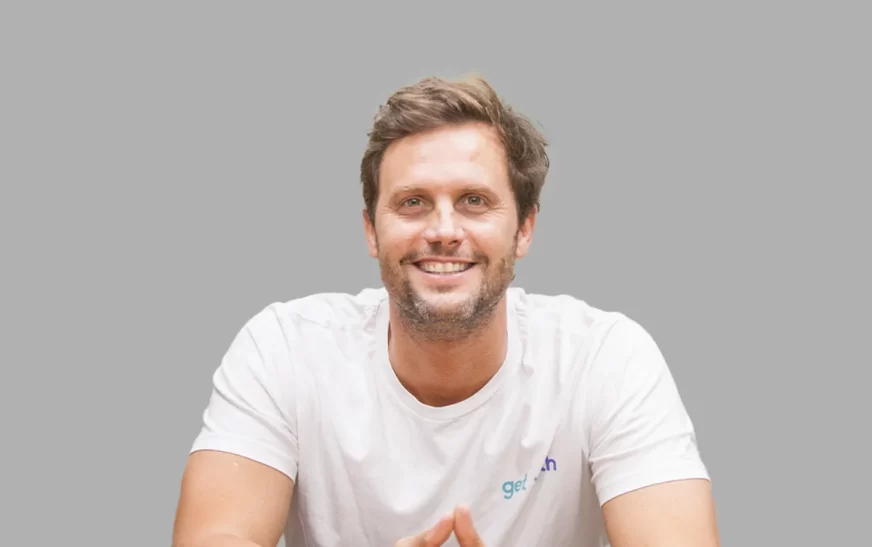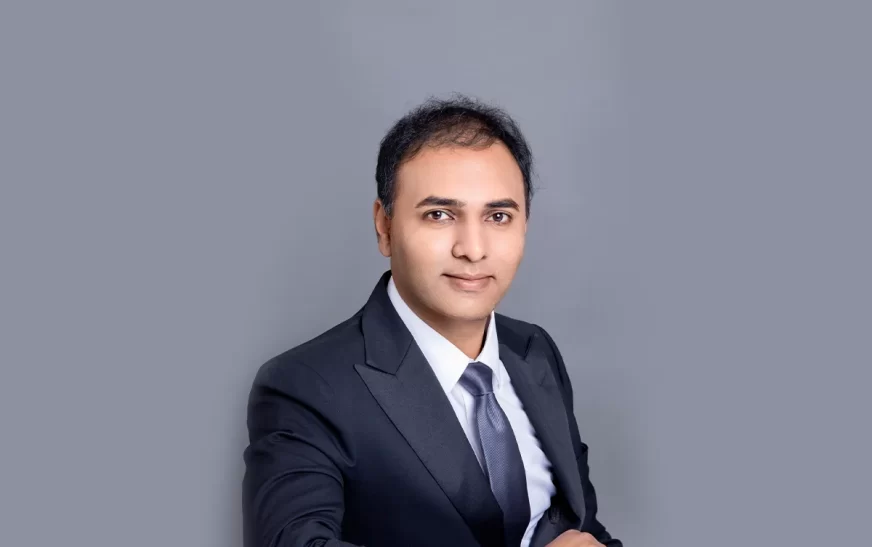
Blending Data, Discipline, and Empathy
David Oruya
Chief Operating Officer
Access Shipping Agency


Blending Data, Discipline, and Empathy
David Oruya
Chief Operating Officer
Access Shipping Agency
As global commerce surges ahead, the maritime freight sector is its vital lifeline, projected to reach nearly $492 billion by 2028. In this world where disruption is constant and precision is everything, the Chief Operating Officer is no longer just an executor, but a strategic anchor amid uncertainty. Dr. David Oruya, COO of Access Shipping Agency, exemplifies leadership at this intersection of complexity and transformation. A Fellow of the Institute of Chartered Shipbrokers (FICS), Chartered Fellow of the Chartered Institute of Logistics and Transport (FCILT), Member of the Institute of Directors (MIoD), and Certified Professional Mediator (CPM) accredited by the Judiciary of Kenya, he also serves on the executive committee of ICS East Africa, chairing several key committees. He has quietly shaped East Africa’s shipping corridors for over twenty years, translating frontline grit into strategic clarity and building systems where innovation and human values coexist. Known for his disciplined calm and unshakable clarity, he leads with equal parts courage and empathy. He is recognised not just for operational excellence but also for redefining resilience and leadership under pressure. For him, operational brilliance starts in the mind, rooted in humility, learning, and the courage to make bold decisions even when the way forward is unclear. In this exclusive TradeFlock feature, Dr. David Oruya unpacks the turning points, philosophies, and innovations that shape his leadership, offering a rare inside look at the mindset required to thrive in today’s most demanding operational roles.
What part of your journey shaped you most?
The turning point was when my work stopped being a profession and became a calling. Those early days in Mombasa, solving real problems with my hands, taught me grit, humility, and how to listen truly. But the real transformation came when I stepped into leadership. The shift from execution to strategy stretched me in every way, requiring more clarity, courage, and vision than I’d ever imagined.
“Every challenge demanded deeper thinking and a broader perspective, and that’s what shaped the leader I’ve become.”
Along the way, I was sharpened by my team, guided by mentors, and fueled by a mindset of lifelong learning. My faith anchored me in uncertain moments, reminding me that growth isn’t just about outcomes and who you become.
Can you share a maritime challenge and the bold decision you took to resolve it?
There was a moment when everything was at stake—a vessel delayed in Dar es Salaam, over ten ships ahead of us, and pressure building by the hour. Waiting was the safe route, but I knew we had to act. We made a tough call: diverted to Mombasa, carefully managed draft limits, discharged cargo in phases, and restowed Dar cargo before returning. It was high-risk, but it worked.
“It taught me that boldness in operations isn’t bravado but clarity, courage, and the willingness to bet on better outcomes.”
That day reminded me that strategy doesn’t always come from the plan but from presence, teamwork, and knowing when to move.
What’s your first mental check in a high-stakes operational crisis?
The first thing I do is pause. In high-pressure moments, I’ve learned that rushing rarely leads to wisdom. I take a breath and ask myself: What’s true? What’s urgent? What’s strategic? That pause helps me center not just myself, but my team. I call it disciplined calm, balancing urgency with clear judgment. Then we verify the facts, focus on the real disruption, and move forward with intent. Faith also plays a big part. I remind myself I’m not alone in the process, and there’s always a way to go. As a leader, I believe my mindset shapes the room, so I try to lead with calm, clarity, and purpose, even in the storm.
What’s your process after an operational failure?
When a plan fails, I don’t jump to fix it; I start by listening. Failure, to me, is a mirror, not a verdict. I begin with the system: Were our assumptions flawed, data incomplete, or signals missed? Then I focus on people, such as whether the communication is clear. Were responsibilities understood? Lastly, I check the mindset—did we walk in with fear, complacency, or distraction? I never approach it with blame. I aim to extract the lesson without damaging trust because real improvement comes from honest reflection, not reaction.
Which maritime innovation excites you, and which concerns you?
What excites me most is that we can almost predict the future. Digital twins and predictive logistics are changing the game. Simulating supply chain responses in real time opens a new level of resilience and agility in operations. But what gives me pause is overautomation without accountability. Technology should support human judgment, not replace it. When we lean too heavily on algorithms, we risk losing the very instincts and ethics that keep leadership grounded.
What’s your core philosophy in operations?
I’ve always seen operations as more than execution and believe it’s the discipline of turning potential into progress. My approach is rooted in two principles: continuous improvement and structured preparation. I believe there’s always room to refine a system, a process, or a team dynamic, not for perfection’s sake, but to respect what’s possible. At the same time, I’m deeply intentional about planning. Without clarity and foresight, even great teams can lose direction. That blend of curiosity, structure, and people-centred thinking shapes how I lead operations with purpose, precision, and a long view in mind.

